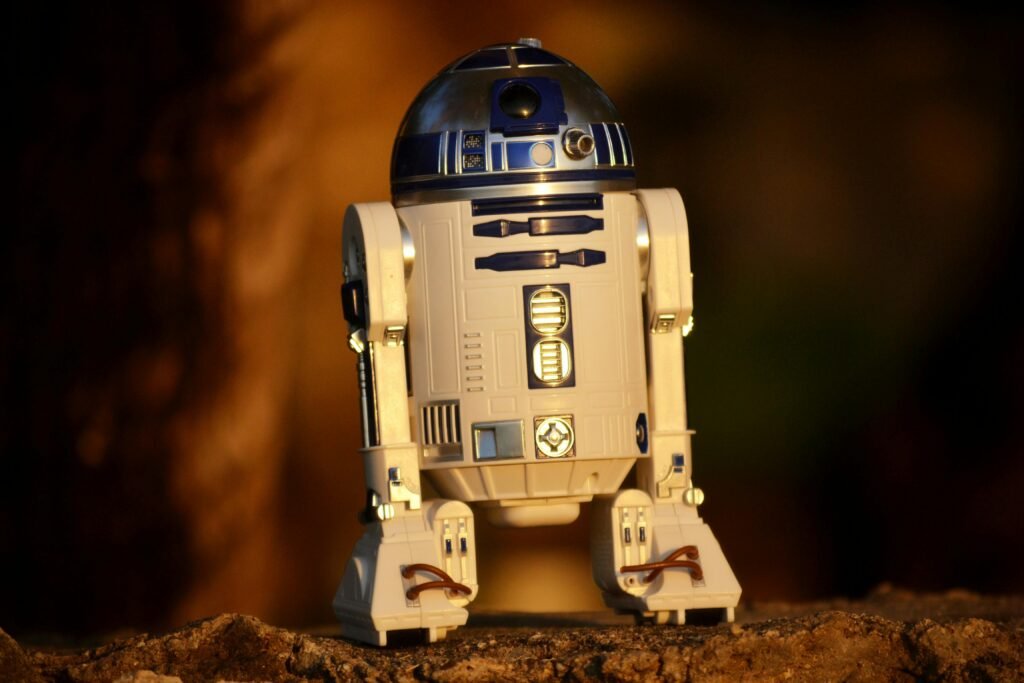🚀 Role of AI in Space Exploration: 7 Revolutionary Ways AI Is a Game-Changer in 2025
The role of AI in space exploration is expanding faster than ever. From helping astronauts onboard the ISS to navigating rovers on Mars, artificial intelligence is becoming a mission-critical part of space science.
At AiBlogQuest.com, we break down the 7 revolutionary ways AI is transforming space missions, making the impossible feel within reach.
🧠 1. Autonomous Spacecraft Navigation
AI enables spacecraft to:
-
Navigate complex orbits
-
Avoid space debris
-
Adjust trajectories in real time
NASA’s DART mission used AI-assisted guidance to autonomously crash into an asteroid and change its path—marking a planetary defense milestone.
🤖 2. Robotic Rovers & Surface Exploration
AI-powered rovers like Perseverance and VIPER can:
-
Avoid obstacles autonomously
-
Analyze terrain for signs of life
-
Make decisions without human input delays
This improves efficiency on planets where communication lag is a major challenge.
🛰️ 3. Satellite Data Analysis
AI helps:
-
Analyze satellite imagery faster than humans
-
Detect changes in Earth’s climate, atmosphere, and surface
-
Predict space weather and solar activity
AI accelerates data extraction from satellites, helping both climate and planetary scientists.
🧬 4. Astronaut Health Monitoring
AI wearables on astronauts:
-
Track vital signs
-
Detect anomalies in real-time
-
Recommend personalized adjustments in diet, exercise, or oxygen levels
This ensures astronaut safety during long-duration missions like those planned for Mars or Moon bases.
📡 5. AI-Powered Communication Systems
AI enhances deep-space communication by:
-
Reducing transmission noise
-
Translating alien terrain data in real-time
-
Compressing and decoding massive data files
Projects like NASA’s Deep Space Network use AI to maintain stable links with distant spacecraft.
🧪 6. Scientific Discovery & Experimentation
AI assists in:
-
Designing experiments aboard space stations
-
Processing astronomical data
-
Detecting exoplanets through pattern recognition
AI tools like Google’s AI Planet Hunter have already discovered new exoplanets from Kepler data.
🌌 7. Mission Simulation and Risk Management
Before takeoff, AI helps engineers:
-
Simulate flight paths, landings, and docking
-
Analyze failure points
-
Reduce mission risk through predictive modeling
Space agencies like ESA and ISRO use AI to model launch environments and spacecraft behavior under stress.
🔗 Useful Links from AiBlogQuest.com
❓ FAQ: Role of AI in Space Exploration
Q1. Why is AI important in space exploration?
AI helps manage complex operations like navigation, communication, data processing, and decision-making—especially in environments where real-time human input is limited.
Q2. Which space agencies use AI?
NASA, ESA, ISRO, SpaceX, and Blue Origin are all incorporating AI into mission planning, rover control, and astronaut health monitoring.
Q3. What are the risks of AI in space?
Over-dependence on AI could lead to failure if algorithms behave unpredictably. That’s why human oversight remains essential.
Q4. Can AI operate independently in space?
Yes, autonomous AI is crucial when there’s signal delay (e.g., Mars missions) or no real-time access to ground control.
Q5. How is AI used in the ISS?
AI assistants like CIMON (Crew Interactive MObile companioN) help astronauts with procedures, communication, and even emotional support.
🏁 Final Thoughts
The role of AI in space exploration is only growing. From autonomous navigation to real-time data analysis and health monitoring, artificial intelligence is not just supporting astronauts—it’s becoming one of them.
Stay ahead of cosmic tech trends with AiBlogQuest.com—your window into the AI-powered future.
🏷️ Tags:
role of AI in space exploration, ai in nasa, ai space tech 2025, artificial intelligence in space, aiblogquest



